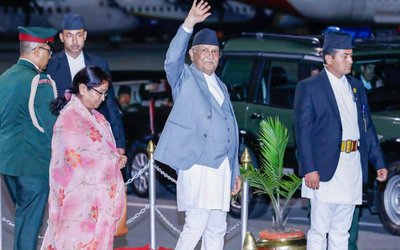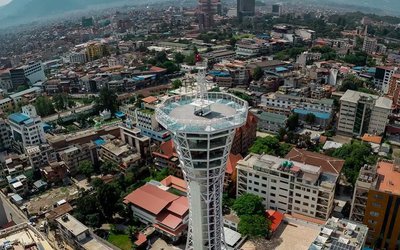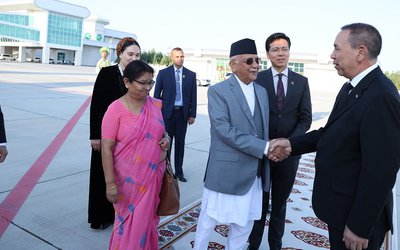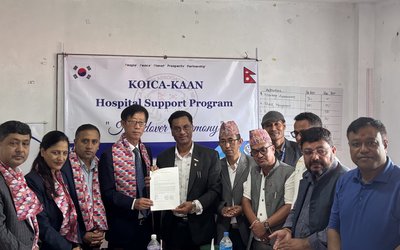Nepal’s 2025/26 national budget presents an ambitious roadmap for economic transformation, prioritizing education, healthcare, infrastructure, agriculture, and employment. These priorities are both timely and necessary. But bold numbers on paper mean little without effective delivery—and that hinges on governance. In this regard, Nepal’s entrenched dalalpunjibad (broker capitalism) and bichaulia (intermediary culture) remain challenging obstacles.
Broker capitalism in Nepal operates not on competition, productivity, or value creation, but rather thrives on rent-seeking behavior, political patronage, and informal power networks. A defining characteristic of this system is its preference for trading over building. Instead of investing in local industries that generate employment and retain wealth domestically, broker capitalism favors importing goods through intermediaries who profit from commissions, licenses, and procurement influence. The outcome is a hollow economy that sidelines Nepal’s domestic potential in favor of quick deals and entrenched vested interests.
This is particularly evident in sectors like cement, fertilizer, and pharmaceuticals. Despite abundant limestone reserves and capable domestic producers, large infrastructure projects often favor imported cement or politically connected contractors. In the case of fertilizer, Nepal has yet to establish domestic production, not because of technical or resource limitations, but because imports generate high profit margins for a few well-connected distributors. These intermediaries dominate the supply chain, resulting in inflated prices and persistent shortages that directly impact farmers. Such distortions erode Nepal’s productive capacity and undermine the core intent of budget allocations aimed at fostering self-reliance and inclusive economic growth.
Young entrepreneurs trying to build agro-enterprises or tech startups often find themselves locked out by middlemen networks that monopolize access to markets, capital, and licenses. Instead of nurturing a new generation of innovators and job creators, the current system blocks them in favor of those with influence rather than ideas.
The intermediary culture extends beyond the economy into the heart of public administration. Middlemen often mediate political appointments, civil service transfers, and promotions, eroding meritocracy and institutional competence. Public procurement suffers from similar manipulation, with tenders awarded through informal negotiations rather than transparent competition. This leads to inflated project costs, poor-quality outcomes, and widespread public disillusionment.
Outside the formal economy, intermediaries also drive harmful practices such as visit visa-based human trafficking. In numerous instances, informal agents lure aspiring migrant workers with false promises, funneling them into exploitative networks abroad. These operations thrive on weak regulation, bureaucratic collusion, and political protectionplacing citizens at risk while enriching a select few.
Without addressing these governance bottlenecks, even the best-designed budget will struggle to deliver results. Allocations meant for infrastructure, agriculture, and employment are routinely captured by politically connected networks. Funds leak, implementation stalls, and public trust erodes.
To transform Nepal’s economy, the country must move from broker capitalism to a builder’s model. This requires transparent and accountable public procurement, democratized access to finance and markets for genuine entrepreneurs, and reforms in political financing to reduce reliance on vested interests. Additionally, the rooted intermediary culture must be uprooted by enforcing merit-based governance, strengthening bureaucracy, criminalizing informal brokerage, and implementing protections for whistleblowers alongside streamlined administrative processes to close loopholes exploited by middlemen.
The national budget provides a fiscal roadmap, but governance is the engine that drives it. Without dismantling the informal systems that hijack development, Nepal will continue to recycle grand promises into disappointingoutcomes. To move forward, Nepal must dismantle both broker capitalism and intermediary culture, reclaiming governance from the shadows. The path to a productive, fair, and resilient economy lies in strengthening institutions rooted in transparency, merit, and accountability. The time to act is now before another budget cycle passes with ambitions unrealized.
Dr. Prabin Manandhar is an international development expert with experience across Asia, the Middle East, and Africa. He is the Country Director of Helvetas Myanmar, former Chair of the Association of International NGOs (AIN) Nepal, and former Convenor of ACT Alliance in Nepal and Iraq. He also teaches at Kathmandu University. The opinions expressed are his own. Contact: prabin.manandhar11@gmail.com
- Politics Beyond Power: Serve the People Now
- Jul 20, 2025
- Redefining Regional Cooperation: How SAARC can evolve like ASEAN
- May 11, 2025
- From Nepal to Myanmar: Navigating Earthquake Response Lessons
- Apr 13, 2025
- World Humanitarian Day 2024: Committing to Peace and Accountability
- Aug 19, 2024
- Nepal Investment Summit: Unlocking Economic Potentials For Growth And Development
- Apr 28, 2024














